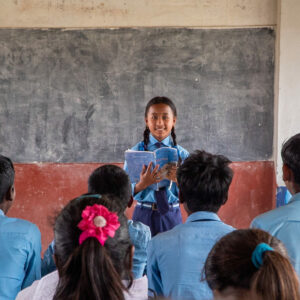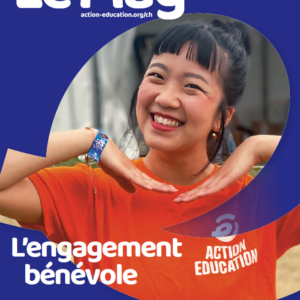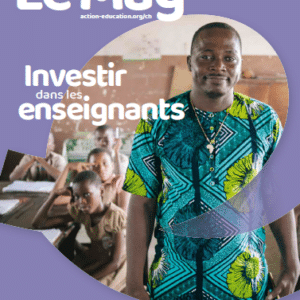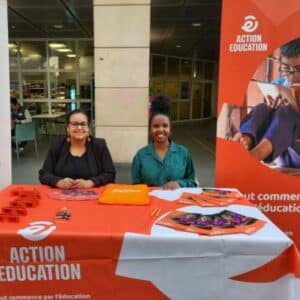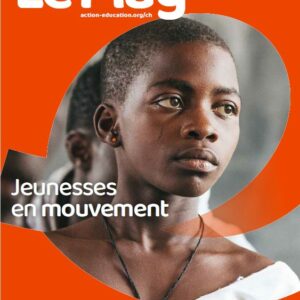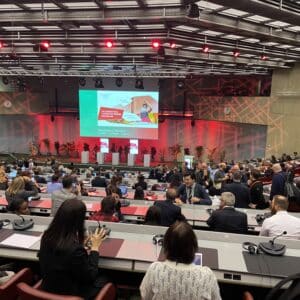For millions of girls, adolescence is a particularly difficult time. Once they start menstruating, the door to childhood and innocence closes. How can they continue to go to school with blood loss, without access to a toilet and without a sanitary napkin? This seems inconceivable in 21ème This is the first time in the last century that this has happened to millions of young girls. This daily routine is not without consequences as it leads to absenteeism and early school leaving.
A toilet in a school may not seem like a big deal. But in almost 6 out of 10 schools in the world, it remains a luxury. And yet it is an essential need, indispensable to every child. Especially for girls, for whom the onset of menstruation in adolescence, often a taboo subject, represents a major obstacle to continuing their schooling. The lack of access to sanitary towels, toilets or washbasins, or even to all three at the same time, condemns them to be absent from school for 5 to 7 days a month. This repeated absenteeism leads to early school leaving.
Preventing the risk of abandonment
One of Aide et Action's first missions in the schools where it intervenes is to build separate toilets for girls and boys. This is the case in about 170 schools in Benin where Aide et Action is working within the framework of "Act". This program aims at facilitating the schooling of nearly 17,000 girls. "Aide et Action has built a lot of infrastructure in my school, including latrines and a hand washing facility. Before we had no latrines at all in our school. My classmates and I used to defecate in the open, which was not good for our health. The hand-washing station was also welcome in the face of the COVID-19 pandemic," explains Happy Gbakpo, a third-grade student at the Ecole Primaire Publique Azizakouè in the commune of Ouidah.
Lifting taboos
" Menstruation is a normal process in the lives of our daughters, sisters and mothers. It is not acceptable for them to be absent for five days a month. There is no need to isolate them during their periods as prescribed by certain rites and customs. They can go about their daily business normally if they are able to do so. It is just necessary to sensitise them and teach them to take care of themselves and their studies. I am very grateful to the teachers for their involvement in this mission This is why Aide et Action has set up a "menstruation programme", explains Raymond Datin, president of the Gonfandji school parents' association. Aide et Action entrusts groups of teachers and mothers with the task of looking after the girls, discussing with them the arrival of their periods and preparing them for this new stage of life. " As a teacher, I am involved in helping girls manage their periods and this is very important to me. When I was a child, I had a very bad time with it. The first time I had it, I was on holiday with my uncle in Ghana and he almost sent me back to Benin thinking I was pregnant. I was in a lot of pain and losing a lot of blood, and I missed a week of classes to avoid being spotted in class and becoming a laughing stock. One day, my SVT teacher pointed out to me that it was not normal to miss school because of this. Without her intervention, I might have dropped out of school This is the reason why we have been able to get to know the girls better," explains Inès KATCHA, a second grade teacher at the public school of GOLO - DJIGBE. An intervention that also allows us to get to know young girls better, to lift many taboos and to strengthen their protection. " As part of the Act programme, I was responsible for taking a census of menstruating girls in the school to ensure their attendance. Talking to them had a positive effect, absences decreased drastically. But the training I received also allowed me to notice the strange attitude of a reserved, fearful and often late student. I had a long talk with her and I understood that she was living a drama: she was regularly abused by her stepfather since she was in CM1. There are six of us teachers in the school and we had not seen anything of her suffering until then! "explains Ertosie Boko, a fourth grade teacher at Dagléta School.



